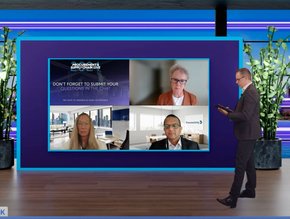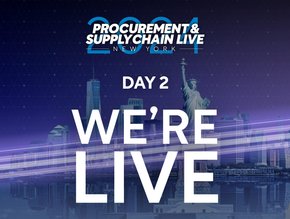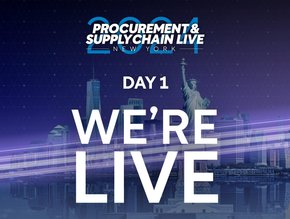People Resolve Supply Chain Crises, Not Documents, Says PwC

Business leaders facing serious supply chain disruption need to remember that it is people who manage a crisis, not crisis-management documents, a leading resilience expert says.
Bobbie Ramsden-Knowles is Crisis & Resilience Partner with PwC UK. She has worked on a variety of crises, ranging from industrial relations action to product recalls and manufacturing incidents, as well as the response of businesses to supply chain shocks seen during the pandemic.
Speaking about disaster preparation strategies on PwC’s podcast series, Take on Tomorrow, she says one of the big mistakes organisations make is “thinking that as long as they have a crisis plan, then they’re good”.
She adds: “But it’s people who manage crises, not documents. I think that was one of the biggest lessons out of Covid. Businesses need to invest as much in their leadership team as they do in writing plans."
Ramsden-Knowles advises companies to review their Covid crisis-management strategies “and review what worked well and what could be improved”.
She feels that in general people adapted well and responded well but that being in crisis mode for so long “really put pressure on people”.
She says this is why an important part of her role when working with crisis leaders is to focus on the executives’ “personal resilience”.
“How do you help people who are responsible for leading in a crisis build their own personal resilience?” she asks.
Supply chain leaders 'need personal resilience to cope'
She adds: “An interesting thing is that in a crisis, people often don’t want to leave. They want to do well for the company, for those who are impacted. But one of the best things you can do is make sure that you’re giving people a break, in order for them to recover. That recovery is even more important when you’re operating under pressure.”
Ramsden-Knowles says that a lot of PwC training with crisis leaders is designed to help them “think through how they react under pressure”. “We get them to think about how their behaviour changes,” she says, pointing out that with some people "you can’t see the stress, and it’s difficult to manage and lead those people, because you can’t adapt your style to manage that. You think they’re totally fine”.
In today's world, Ramsden-Knowles says one of the most serious crises an organisation can face is a ransomware attack.
“What’s really changed crisis planning is cyber-risk ransomware, because the impacts can be so severe,” she says, adding: “Planning for this specific scenario goes beyond the type of planning we’ve done previously. It’s the type of crisis that can threaten the long-term viability of a company.
“When we go in to help clients that have been hit by ransomware, we’ll help them think through all the different considerations, including how and when to communicate with stakeholders, and to face the reputational risks they face.”
And Ramsden-Knowles final piece of advice for those facing a crisis?
“Always have a lot of food available,” she says. “Make sure you have a lot of sugar.”






